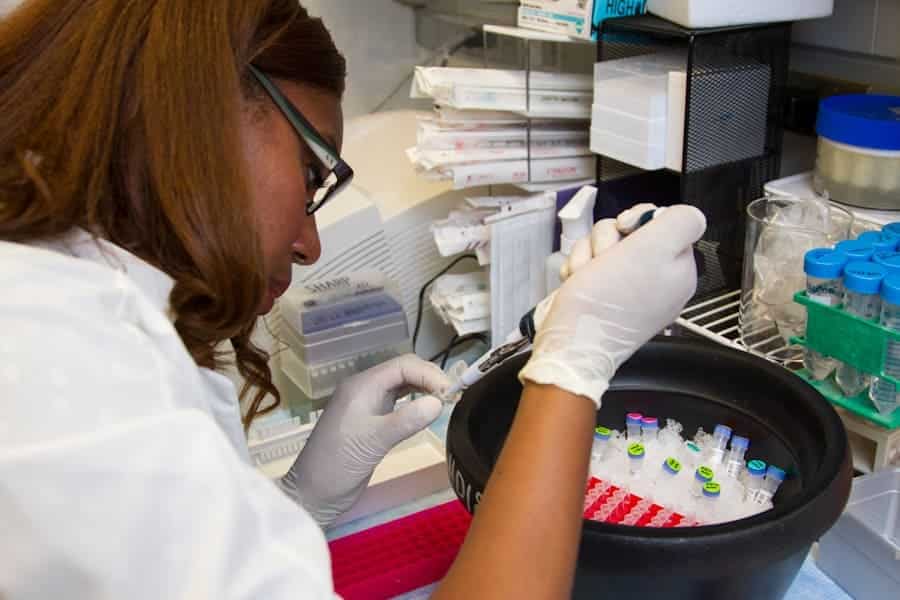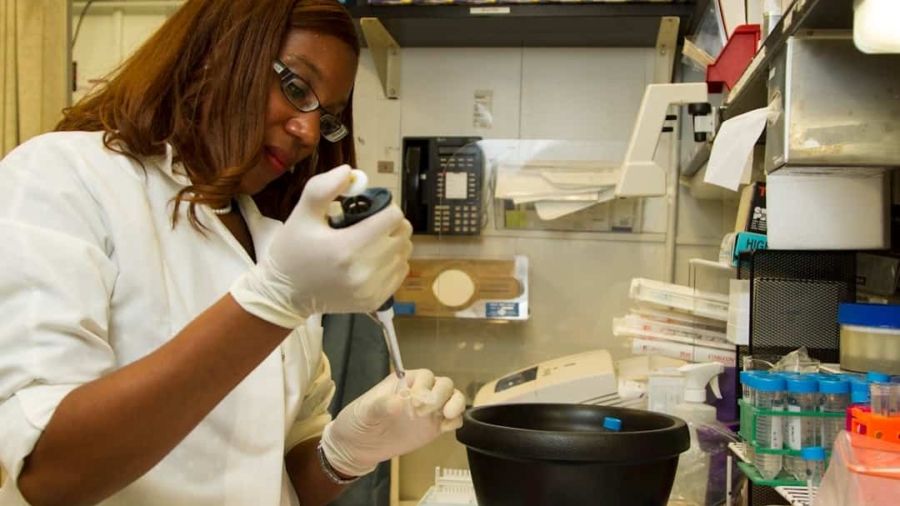The emergence of biotech startups has become increasingly significant in the context of global health crises, particularly as the world grapples with challenges such as pandemics, antibiotic resistance, and chronic diseases. These nimble enterprises are often at the forefront of innovation, leveraging cutting-edge technologies to develop solutions that can address urgent health needs. The COVID-19 pandemic, for instance, has underscored the critical role that biotech startups play in rapidly responding to health emergencies, showcasing their ability to pivot quickly and deliver effective interventions.
As traditional pharmaceutical companies may be encumbered by bureaucratic processes and lengthy development timelines, biotech startups can often operate with greater agility, allowing them to bring novel therapies and diagnostics to market more swiftly. Moreover, the landscape of global health is continuously evolving, driven by factors such as climate change, urbanization, and demographic shifts. These changes create new health challenges that require innovative approaches.
Their focus on research and development enables them to explore uncharted territories in medicine and public health, making them indispensable players in the quest for improved health outcomes worldwide.
Key Takeaways
- Biotech startups play a crucial role in addressing global health crises by developing innovative solutions and technologies.
- These startups face challenges such as limited resources, regulatory hurdles, and market access in addressing global health crises.
- Government support and funding are essential for the growth and success of biotech startups in developing solutions for global health crises.
- Collaboration and partnerships within the biotech industry are key to driving innovation and addressing global health challenges effectively.
- Ethical and regulatory considerations are important for biotech startups to ensure the safety and efficacy of their products in addressing global health crises.
The Role of Biotech Startups in Developing Innovative Solutions
Biotech startups are pivotal in developing innovative solutions that can transform healthcare delivery and disease management. By harnessing the power of biotechnology, these companies are creating groundbreaking therapies, vaccines, and diagnostic tools that can significantly alter the course of diseases. For example, mRNA technology, which gained prominence during the COVID-19 pandemic, was pioneered by several biotech startups before being adopted by larger pharmaceutical companies.
This technology not only facilitated the rapid development of effective vaccines but also opened avenues for treating other infectious diseases and even certain types of cancer. In addition to vaccines, biotech startups are also exploring gene editing technologies such as CRISPR-Cas9, which allows for precise modifications to DNThis capability holds immense potential for treating genetic disorders and enhancing agricultural resilience against climate change. Startups like Editas Medicine and CRISPR Therapeutics are at the forefront of this revolution, working on therapies that could one day cure conditions like sickle cell disease and muscular dystrophy.
The ability to innovate rapidly and adapt to new scientific discoveries positions biotech startups as key players in addressing both existing and emerging health challenges.
Challenges Faced by Biotech Startups in Addressing Global Health Crises

Despite their potential, biotech startups face a myriad of challenges that can hinder their ability to effectively address global health crises. One of the most significant obstacles is the high cost associated with research and development. Developing a new drug or therapy can take years and require substantial financial investment, often running into hundreds of millions of dollars before a product reaches the market.
For many startups, securing sufficient funding is a daunting task, especially in a competitive landscape where investors are often risk-averse. Regulatory hurdles also pose a considerable challenge for biotech startups. The process of obtaining approval from regulatory bodies such as the U.S.
Food and Drug Administration (FDA) or the European Medicines Agency (EMA) is complex and time-consuming. Startups must navigate a labyrinth of regulations that govern clinical trials, manufacturing practices, and product safety. This can lead to delays in bringing innovative solutions to market, which is particularly problematic during urgent health crises when timely interventions are critical.
Government Support and Funding for Biotech Startups
Recognizing the vital role that biotech startups play in public health, many governments have initiated programs to support these enterprises through funding and resources. In the United States, for instance, the National Institutes of Health (NIH) offers grants specifically aimed at fostering innovation in biotechnology. The Small Business Innovation Research (SBIR) program provides funding opportunities for small businesses engaged in research that has the potential for commercialization.
Such initiatives not only alleviate some financial burdens but also encourage collaboration between startups and established research institutions. Internationally, organizations like the World Health Organization (WHO) have launched initiatives aimed at strengthening the capacity of biotech startups in low- and middle-income countries. These programs often focus on building infrastructure, providing training, and facilitating access to funding sources.
By investing in local biotech ecosystems, governments can enhance their ability to respond to health crises effectively while fostering economic growth through innovation.
Collaboration and Partnerships in the Biotech Industry
Collaboration is a cornerstone of success in the biotech industry, particularly for startups navigating the complexities of global health crises. Partnerships with established pharmaceutical companies can provide startups with access to resources, expertise, and distribution networks that would otherwise be out of reach. For example, during the COVID-19 pandemic, many biotech firms entered into collaborations with larger companies to expedite vaccine development and distribution.
These partnerships allowed for shared knowledge and risk mitigation while accelerating the timeline for bringing life-saving products to market. In addition to collaborations with pharmaceutical giants, biotech startups often engage with academic institutions and research organizations. These partnerships can facilitate access to cutting-edge research and technology while providing a platform for clinical trials and validation studies.
Ethical and Regulatory Considerations for Biotech Startups

Ethical Considerations in Biotech Innovation
As biotech startups push the boundaries of science and technology, they must also navigate a complex landscape of ethical considerations. The rapid pace of innovation raises important questions about safety, efficacy, and equity in access to new therapies. For instance, gene editing technologies like CRISPR have sparked debates about their ethical implications, particularly concerning germline editing that could affect future generations.
Engaging with Ethical Frameworks and Public Discourse
Startups must engage with ethical frameworks and public discourse to ensure that their innovations align with societal values and expectations. This includes considering the potential consequences of their innovations and being transparent about their goals and methods.
Regulatory Compliance: A Critical Aspect of Biotech Innovation
Regulatory compliance is another critical aspect that biotech startups must prioritize. The need for rigorous testing and validation means that startups must invest time and resources into understanding regulatory requirements from the outset. This includes designing clinical trials that meet ethical standards while also ensuring that data collection processes are transparent and robust. Failure to adhere to regulatory guidelines can result in significant setbacks or even the failure of a startup’s product development efforts.
The Impact of Biotech Startups on Global Health Outcomes
The contributions of biotech startups extend far beyond individual products; they have a profound impact on global health outcomes by addressing unmet medical needs and improving access to healthcare solutions. For instance, during the Ebola outbreak in West Africa, several biotech companies developed experimental vaccines that were crucial in controlling the spread of the virus. These efforts not only saved lives but also demonstrated how innovative approaches could be mobilized quickly in response to emerging infectious diseases.
Furthermore, biotech startups are increasingly focusing on neglected diseases that disproportionately affect low-income populations. By developing affordable treatments and diagnostics for conditions such as malaria or tuberculosis, these companies are helping to bridge gaps in healthcare access. Their work contributes to achieving global health goals set forth by organizations like the United Nations, which aim to reduce mortality rates from communicable diseases while promoting overall health equity.
Future Opportunities and Trends for Biotech Startups in Global Health Crisis Management
Looking ahead, there are numerous opportunities for biotech startups to play an even more significant role in global health crisis management. The ongoing advancements in artificial intelligence (AI) and machine learning present exciting possibilities for drug discovery and personalized medicine. Startups that harness these technologies can streamline research processes, identify potential therapeutic targets more efficiently, and develop tailored treatments based on individual patient profiles.
Additionally, as global health challenges continue to evolve—exemplified by climate change’s impact on disease patterns—biotech startups will need to adapt their strategies accordingly. Innovations in areas such as telemedicine, remote diagnostics, and digital health solutions will likely become increasingly important as healthcare systems seek to enhance accessibility and efficiency. By remaining agile and responsive to emerging trends, biotech startups can position themselves as leaders in shaping the future of global health crisis management while continuing to drive meaningful change in healthcare delivery worldwide.
In addition to the promising future of biotech startups in addressing global health crises, it is also important to consider the role of technology in healthcare. One related article worth exploring is “The Best Apps for Facebook 2023” which discusses how social media platforms can be utilized to disseminate important health information and connect individuals with resources during times of crisis. By leveraging innovative apps and platforms, biotech startups can enhance their impact and reach in addressing global health challenges. To read more about this topic, check out the article here.
FAQs
What are biotech startups?
Biotech startups are newly established companies that focus on developing and commercializing innovative biotechnology products and services. These companies often leverage cutting-edge scientific research to address various health and environmental challenges.
How do biotech startups contribute to addressing global health crises?
Biotech startups play a crucial role in addressing global health crises by developing new drugs, vaccines, diagnostic tools, and medical technologies. These innovations can help prevent, diagnose, and treat infectious diseases, chronic conditions, and other health challenges that affect populations worldwide.
What are some examples of biotech startups that have made significant contributions to global health?
Several biotech startups have made significant contributions to global health, such as developing affordable and accessible vaccines for infectious diseases, creating innovative diagnostic tools for early disease detection, and pioneering new treatment modalities for conditions like cancer and rare genetic disorders.
What are the challenges faced by biotech startups in addressing global health crises?
Biotech startups face various challenges in addressing global health crises, including securing funding for research and development, navigating complex regulatory pathways, ensuring equitable access to their products and services, and overcoming technical and scientific hurdles in developing effective solutions for health challenges.
How can biotech startups collaborate with governments, non-profits, and other stakeholders to address global health crises?
Biotech startups can collaborate with governments, non-profits, and other stakeholders to address global health crises by participating in public-private partnerships, accessing funding and resources for research and development, leveraging expertise and infrastructure for clinical trials and product distribution, and aligning their efforts with global health priorities and initiatives.


Add a Comment